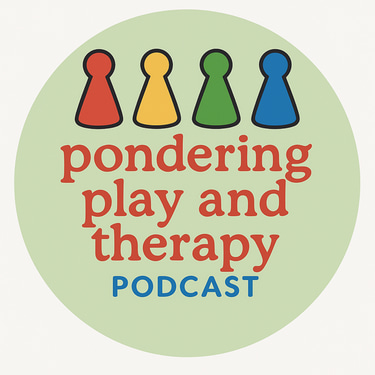Reflections and Insights
𝐌𝐲 20𝐬: I was brimming with enthusiasm and idealism, convinced I could change the world. Life, however, had other plans, and I soon discovered that passion alone wasn’t enough.
𝐌𝐲 30𝐬: Greater agency and life experience arrived, alongside a deepening understanding of attachment theory and Dyadic Developmental Psychotherapy. Yet balancing a young family, a full-time role, further education, and personal relationships brought its own challenges.
𝐌𝐲 40𝐬: I felt I had hit the professional jackpot. My family was growing older, my formal education nearly complete, and I discovered Theraplay through Dan Hughes. From the moment it was introduced, I knew it was the missing piece of my professional puzzle. Training, practicum, and daily practice of Theraplay transformed my work—and the lives of the children and families I supported.
𝐓𝐡𝐞 𝐌𝐞𝐧𝐨𝐩𝐚𝐮𝐬𝐞 Arrives: I remember a manager years earlier, constantly adjusting windows and sweaters, warning me, “Just you wait.” At the time, I didn’t truly understand. Now, it crept up—sometimes subtle, sometimes not. Hot flashes, creaking joints, dry eyes, brain fog, heightened emotions… Everyone experiences menopause differently, yet it’s rarely discussed openly.
𝐓𝐡𝐞 𝐂𝐡𝐚𝐥𝐥𝐞𝐧𝐠𝐞: Combine these physical and emotional changes with Theraplay—a therapy demanding close bodily contact, frequent movement, and full engagement with highly traumatised children and families.
I vividly recall my first hot flash during a session: a 6-year-old had just won tug-of-war and jumped straight into my arms—right as my “internal hot water bottle” turned on full blast. Imagine being boiled from the inside out! I had to summon every ounce of internal strength to maintain connection, resist opening the window mid-session, and hold that child safely and warmly.
𝐋𝐞𝐬𝐬𝐨𝐧𝐬 𝐋𝐞𝐚𝐫𝐧𝐞𝐝: Professional growth isn’t just about skill—it’s about resilience, adaptation, and self-compassion. Menopause may throw unexpected challenges into the mix, but it doesn’t diminish our capacity to connect, nurture, and make a difference.
For those navigating similar transitions, whether personal or professional, my advice is simple: acknowledge the change, embrace it, and find strategies to keep showing up—for yourself and those you support. Theraplay has taught me that connection, warmth, and attunement can thrive even in life’s most surprising twists.
Philippa.




𝐓𝐡𝐞𝐫𝐚𝐩𝐥𝐚𝐲 𝐚𝐧𝐝 𝐭𝐡𝐞 𝐌𝐞𝐧𝐨𝐩𝐚𝐮𝐬𝐞: 𝐍𝐚𝐯𝐢𝐠𝐚𝐭𝐢𝐧𝐠 𝐂𝐡𝐚𝐧𝐠𝐞 𝐁𝐨𝐭𝐡 𝐏𝐞𝐫𝐬𝐨𝐧𝐚𝐥𝐥𝐲 𝐚𝐧𝐝 𝐏𝐫𝐨𝐟𝐞𝐬𝐬𝐢𝐨𝐧𝐚𝐥𝐥y
For the last four decades, I’ve had the privilege of working with families, children, and young people. Each decade has brought its own lessons, both personally and professionally.
Wisdom, Experience and the Age of Our Lives
Reflections on learning across decades—and how we share wisdom without condescension.
By Philippa Kelly - https://substack.com/@philippakelly1
One of the things I’ve been reflecting on lately is how wisdom and learning shift as we move through different stages of life. Are we more open to new ideas in our 20s, 30s, 40s, or 50s? Or does each stage bring its own kind of openness?
In my 20s, I was wide-eyed and enthusiastic—certain that passion and energy could change the world. In my 30s, life experience and deeper professional knowledge began to shape my practice, even as I juggled young children, study, and work. By my 40s and 50s, the layers of personal and professional experience deepened further, bringing a quieter kind of confidence.
Working with children and families, people sometimes assume that to truly understand, you must have children of your own at the same stage and age. But of course, that’s not true. Professional wisdom doesn’t come from matching life circumstances—it comes from listening, empathy, curiosity, and the ability to be present with others.
The challenge then becomes: how do we share wisdom without being condescending? I think the answer lies in humility. Wisdom is not about speaking at someone, but with them. It’s offering experience as one perspective, not the perspective. It’s being willing to learn from others, regardless of age or stage.
Starting the Pondering Play and Therapy podcast has been part of this journey for me. It wasn’t about declaring “I am an expert,” but more about asking: Would this be helpful? Could this be useful to someone else? Each episode is a way of opening up conversations, sharing reflections, and learning alongside others rather than positioning myself as the one with all the answers.
Because here’s the truth: learning isn’t linear. Younger colleagues bring fresh eyes, creativity, and openness. Older colleagues may bring steadiness, experience, and perspective. Both are needed. And both are valuable.
So perhaps the real question isn’t whether we are “more open” at one age than another, but how we keep a posture of openness throughout our lives. How we hold space for each other’s contributions. How we weave together the energy of the new and the grounding of the seasoned.
Wisdom, after all, isn’t something you arrive at—it’s something you share, grow, and keep learning.
✨ I’d love to hear your thoughts—how have you balanced wisdom and learning at different stages of your life? And how do you share what you know without it sounding like you have all the answers?
